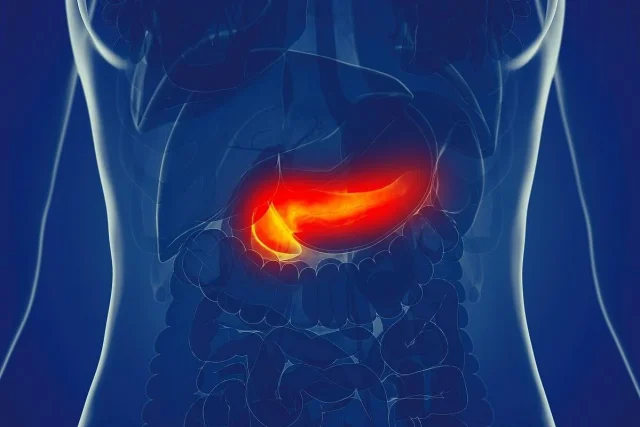Better posttreatment pathology and similar overall survival seen for stereotactic ablative radiotherapy group despite more advanced disease
By Elana Gotkine HealthDay Reporter
FRIDAY, July 11, 2025 (HealthDay News) — Adding stereotactic ablative radiotherapy (SAbR) to neoadjuvant chemotherapy improves pathologic outcomes for patients diagnosed with pancreatic cancer, according to a study published in the July 1 issue of Clinical Cancer Research.
Peter Q. Leung, from the University of Texas Southwestern Medical Center in Dallas, and colleagues conducted a single-institution cohort study involving all patients diagnosed with pancreatic cancer between 2012 and 2023 treated with neoadjuvant chemotherapy with or without SAbR. Data were included for 133 patients receiving chemotherapy and 48 receiving chemotherapy and SAbR; RNA sequencing was available for 29 and 14 patients, respectively.
The researchers found that the SAbR group showed better posttreatment pathology and similar overall survival despite more advanced baseline disease. Locoregional recurrence-free survival was improved with SAbR (hazard ratio, 0.24). With chemotherapy alone, arterial involvement raised local failure risk (hazard ratio, 3.37); this risk was significantly reduced with SAbR (hazard ratio, 0.28). Immune activation was seen in a gene set enrichment analysis, with CD8 and NK/NKT cell signatures associated with local control and regulatory T-cell signatures associated with worse control.
“Our findings suggest stereotactic ablative radiotherapy, which delivers high-dose radiation with minimal toxicity, may improve clinical outcomes for patients with pancreatic ductal adenocarcinoma by lowering the risk of recurrence — especially in cancers that invade or encase major arteries,” lead author Todd Aguilera, M.D., Ph.D., also from the University of Texas Southwestern, said in a statement.
Several authors disclosed ties to the biopharmaceutical industry; one author disclosed holding related patents.
Copyright © 2025 HealthDay. All rights reserved.



















